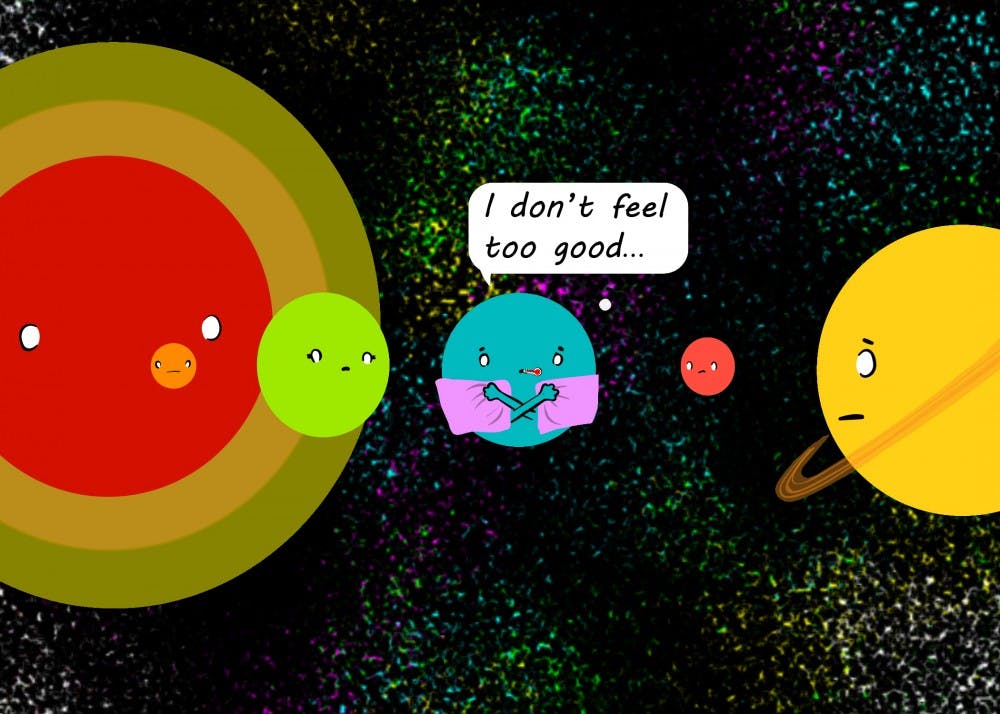Climate change should not be deniable, yet there is still debate about its existence. Even within communities that do accept climate change, people still argue about the extent of human involvement.
The issue is that the longer the debate ensues, the worse the conditions will get.
ASU's sustainability programs are researching causes and solutions to this problem, which would not only lead to a positive impact on campus but also on a much larger scale.
In the past year alone, there has been a dramatic increase in not only the frequency but also the deadliness and economic burden of natural disasters around the world. The increase is often attributed to climate change.
However, many argue that there is no possible way for humans to have caused the sheer number and intensity of the tropical storms, or any other aspect of climate change for that matter.
The current Environmental Protection Agency administrator, Scott Pruitt, also refuses to acknowledge the association between carbon dioxide output and global warming.
Peter Fox, a professor at ASU’s School of Sustainable Engineering and the Built Environment, said that it is hard to deny human involvement in climate change.
“We’re all responsible,” Fox said. “I don’t think the debate is really over the science anymore, it’s more about the ideology. If I tell you you’re responsible for this and you need to change the way you’re acting, then certain people tend to get quite upset … but the fact that we had three Category 4 or 5 hurricanes in one year, one of which was the strongest ever recorded … it’s hard to sit back and say ‘oh well, it’s just an anomaly.’”
Regardless of whether this change in the environment was anthropogenic, it is abundantly clear that it is no longer the time to debate the source, but rather look for solutions instead.
One environmental issue stemming from human involvement comes from the inefficient use of energy.
About 85 percent of the total energy used worldwide comes from the burning of fossil fuels and constitutes 80 percent of the greenhouse gas emitted by human activities. Not only are fossil fuels nonrenewable, but they also contribute to global warming.
Many initiatives are being taken by professors and researchers at ASU, many of which involve the use of wastewater as a source of energy.
“Our goal nowadays is not to treat the water and make sure it’s okay to release into the environment, but to try and actually recover energy from the wastewater,” Fox said.
Treavor Boyer, an associate professor at ASU’s School of Sustainable Engineering and the Built Environment, suggested another method of renewable energy.
“My main passion is a topic referred to as urine diversion, which deals with separating urine at the source,” Boyer said. “We see what we potentially think is large (impact). Wastewater treatment is energy intensive, The way it’s currently designed it doesn’t generate any resources, whereas urine diversion has the potential to decrease the energy inputs to wastewater treatment and generate beneficial products.”
ASU as a campus has also taken initiative to be sustainable.
“I think the solar power is tremendous, compared to most other places and universities I’ve seen,” Fox said. “They’ve invested so much on the solar power side of things. I personally am on the water sustainability committee, and we’ve done a good job — even though we’ve had tremendous growth on campus over the last 15 years, the water demand has been pretty flat.”
ASU also committed to producing zero waste across all their campuses and also advocates for sustainable public transportation.
Given the changing environment and the influx of natural disasters, it is important to take initiative rather than focusing on the political aspects of the debate.
Reach the columnist at kalbal@asu.edu or follow @KarishmaAlbal on Twitter.
Editor’s note: The opinions presented in this column are the author’s and do not imply any endorsement from The State Press or its editors.
Want to join the conversation? Send an email to opiniondesk.statepress@gmail.com. Keep letters under 500 words and be sure to include your university affiliation. Anonymity will not be granted.
Like The State Press on Facebook and follow @statepress on Twitter.




